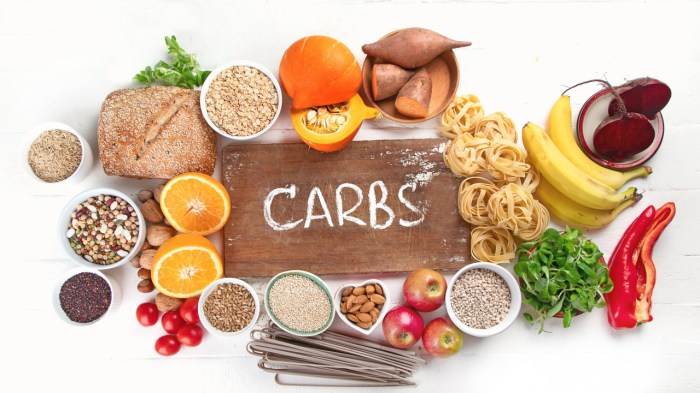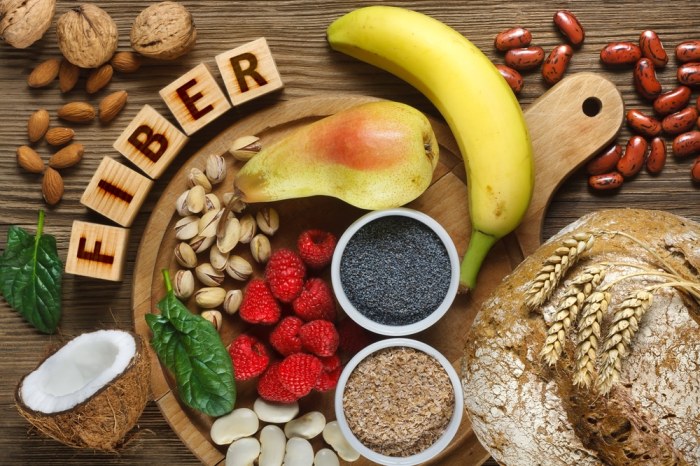Rachel needs to eat fewer carbohydrates – With Rachel’s health in mind, this article delves into the importance of reducing carbohydrate intake, exploring its potential benefits and providing practical tips for success.
Studies have shown that limiting carbohydrate consumption can lead to significant improvements in weight management, blood sugar control, and overall well-being. Understanding the reasons behind this dietary shift is crucial for Rachel’s journey toward better health.
Rachel Needs to Eat Fewer Carbohydrates

Carbohydrates are an essential macronutrient that provide the body with energy. However, excessive carbohydrate intake can lead to weight gain, insulin resistance, and other health issues. Reducing carbohydrate intake can offer numerous health benefits and help individuals achieve their weight management and overall wellness goals.
Health Benefits, Rachel needs to eat fewer carbohydrates
- Weight Management:Reducing carbohydrate intake can help reduce calorie intake, leading to weight loss and improved body composition.
- Blood Sugar Control:Carbohydrates raise blood sugar levels, and excessive intake can lead to insulin resistance and type 2 diabetes. Reducing carbohydrates can help stabilize blood sugar levels and improve insulin sensitivity.
- Improved Cholesterol Profile:A low-carbohydrate diet has been shown to raise HDL (good) cholesterol and lower LDL (bad) cholesterol, reducing the risk of cardiovascular disease.
- Reduced Inflammation:Refined carbohydrates can contribute to inflammation in the body. Reducing carbohydrate intake may help reduce inflammation and improve overall health.
Practical Tips
- Identify High-Carbohydrate Foods:Processed foods, sugary drinks, bread, pasta, and rice are high in carbohydrates.
- Focus on Whole Foods:Fruits, vegetables, lean protein, and healthy fats are low in carbohydrates and rich in nutrients.
- Meal Planning:Plan meals around lean protein, non-starchy vegetables, and healthy fats to limit carbohydrate intake.
- Read Food Labels:Pay attention to food labels and choose foods with low carbohydrate content.
Challenges and Solutions
- Hunger and Cravings:Reducing carbohydrate intake can initially lead to hunger and cravings. Stay hydrated, eat regular meals, and focus on fiber-rich foods to manage these challenges.
- Social Situations:Eating out or attending social events can be challenging when following a low-carbohydrate diet. Plan ahead, bring your own food, or make informed choices at restaurants.
- Exercise Performance:Carbohydrates are essential for high-intensity exercise. Adjust carbohydrate intake based on activity levels and consider consuming carbohydrates before and after workouts.
Meal Plan
| Meal | Makanan | Porsi | Karbohidrat (gram) |
|---|---|---|---|
| Breakfast | Telur dadar dengan bayam dan jamur | 2 butir telur | 5 |
| Makan Siang | Salad ayam panggang dengan sayuran campuran | 100 gram ayam | 10 |
| Makan Malam | Salmon panggang dengan brokoli dan kembang kol | 150 gram salmon | 15 |
| Snack | Yogurt Yunani dengan beri | 100 gram yogurt | 12 |
Recipes
- Telur Dadar Sayuran:Kocok 2 butir telur, tambahkan bayam dan jamur cincang. Masak dalam wajan anti lengket hingga matang.
- Salad Ayam Panggang:Panggang 100 gram dada ayam tanpa tulang tanpa kulit. Campurkan dengan sayuran campuran, seperti bayam, wortel, dan mentimun.
- Salmon Panggang dengan Sayuran:Panaskan oven hingga 180°C. Letakkan 150 gram salmon di atas loyang berlapis kertas roti. Tambahkan brokoli dan kembang kol yang dipotong. Panggang selama 15-20 menit.
FAQ Overview: Rachel Needs To Eat Fewer Carbohydrates
What are the main health benefits of reducing carbohydrate intake?
Lower risk of obesity, improved blood sugar control, reduced inflammation, and enhanced overall health.
How can Rachel identify high-carbohydrate foods?
Foods high in refined grains, processed snacks, sugary drinks, and certain fruits contain significant amounts of carbohydrates.
What are some practical tips for reducing carbohydrate intake?
Focus on consuming lean protein, healthy fats, and non-starchy vegetables; limit processed foods, sugary drinks, and refined carbohydrates.

